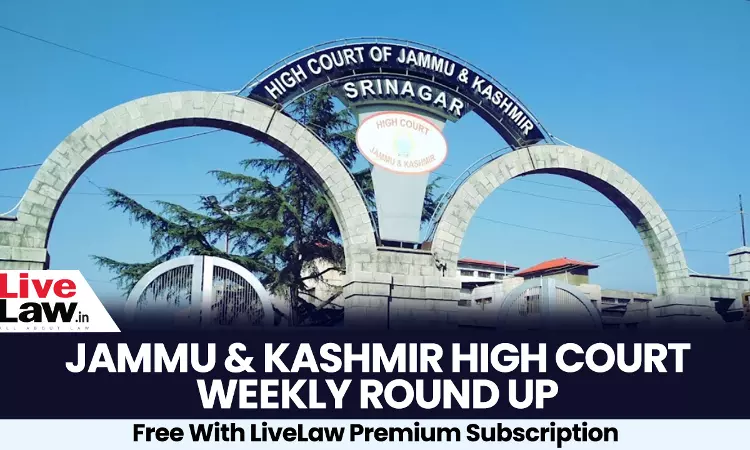Jammu & Kashmir And Ladakh High Court Weekly Round-Up: September 2 - September 8, 2024
LIVELAW NEWS NETWORK
9 Sept 2024 9:30 AM IST

Next Story
9 Sept 2024 9:30 AM IST
Nominal Index [Citations 248 - 252]:Mst Shameema Begum Vs Javid Iqbal Khan 2024 LiveLaw (JKL) 248Showkat Ahmad Rather Vs State of J&K 2024 LiveLaw (JKL) 249Kishore Kumar Vs Ishar Das 2024 LiveLaw (JKL) 250Narayan Sharma @ Shuna through Mrs. Lata Sharma (Mother) Vs UT of J&K 2024 LiveLaw (JKL) 251Showkat Ahmad Vs State of J&K 2024 LiveLaw (JKL) 252Judgments/Orders:DV Act | No Need...
